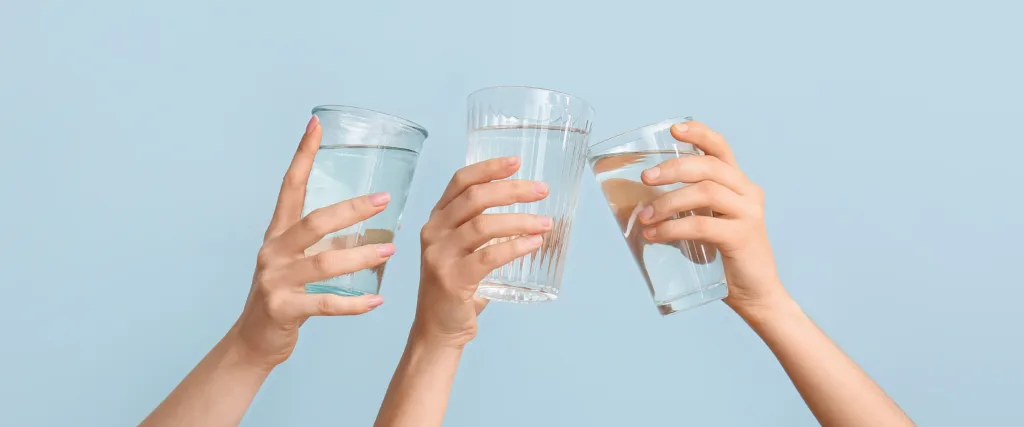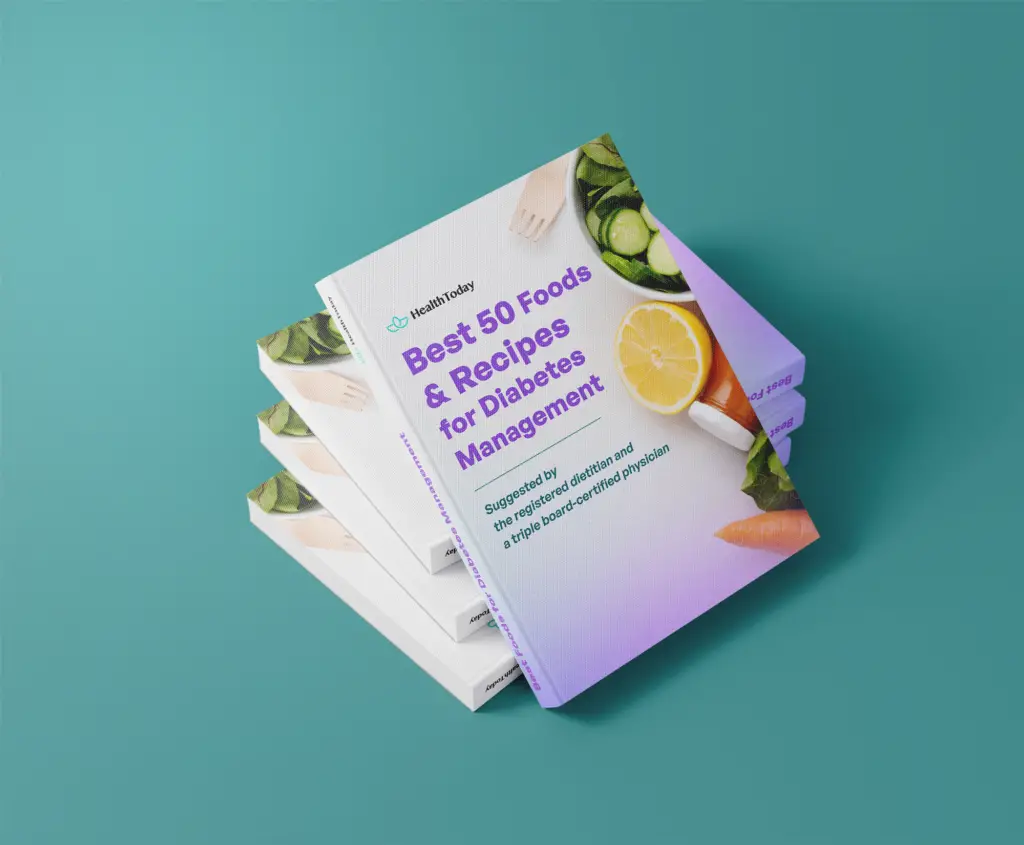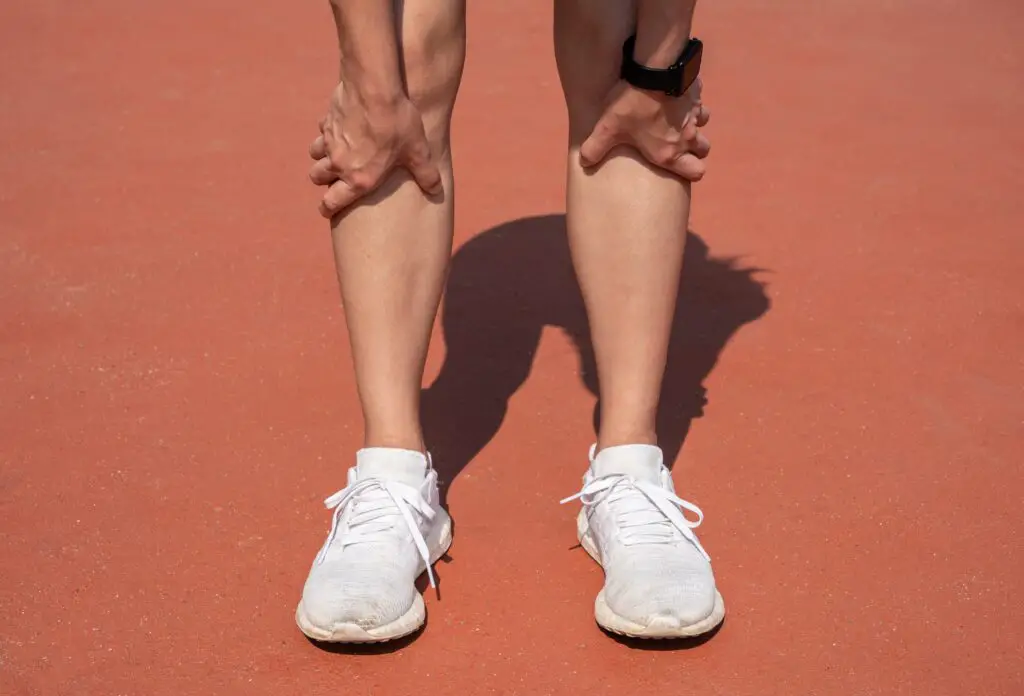Table of Contents
TRANSCRIPT
Did you know a simple urine test may reveal your risk for future disease? Looking at your Urinalysis Report Form, you will find your level of protein in the urine. If this number goes beyond 500 mg per liter (1), you may have proteinuria, which can show early stages of kidney damage. This damage is present when the kidney’s filtering system is not working properly (2).
In our previous video on proteinuria, we clarified that this is not a health condition on its own, but a symptom of kidney disease characterized by an excess of protein in the urine. Most people are unaware they have proteinuria (2).
For those who have yet to watch these videos, please note that proteinuria may be temporary or persistent. Our proteinuria series will focus more on persistent proteinuria that is often due to chronic kidney conditions. Keep in mind that reduction in proteinuria can decrease further kidney damage, saving you from the harsh pain caused by unhealthy kidneys and expensive treatments in the future.
So, in this important video, we will discuss three vitamins that can help stop your proteinuria and assist in healing kidney damage. Find out which vitamins they are, why they’re important, and how to get enough in your diet. Be sure to watch until the end to learn about the causes and prevention of proteinuria.
Before we dive in, please note, all the information in this video is created by real people. You can visit our website at healthtoday.com to see our advisory board and the team behind these videos. We do not rely on AI tools like ChatGPT for automatic content generation. Be assured, our information is thoroughly fact-checked, unbiased, and reviewed by qualified professionals. By providing this information, we aim to equip you with the knowledge necessary to make informed decisions about your diet. Now, let’s return to the topic of proteinuria.
The kidney’s normal function is to filter blood and remove waste. The waste in urine contains excess water and minerals. The kidneys help maintain balanced fluids to ensure healthy blood pressure levels. Typically, the body does not leak protein into urine (3). What is clear is that any reduction in proteinuria will decrease further kidney damage (4).
Some vitamins may be low in people with kidney damage (5). Replacing these vitamins, whether naturally in food or by taking supplements, may help improve kidney function by repairing tissues.
More specifically, people may be low in many vitamins due to various reasons associated with kidney damage. First, the damage to the kidney’s filtering systems, called glomeruli, may allow these vitamins to leak into the urine along with proteins. Second, malnutrition is common in those with kidney damage and may be related to a distorted taste and decreased appetite. It may also result from eating a diet low in nutrient-dense foods (5).
Third, as kidney damage worsens, doctors may recommend limiting certain foods. In cases of severe kidney disease, foods such as certain types of beans, fruits, vegetables, and foods containing milk should not be eaten. These are high in potassium or phosphorus, which can be dangerous when not properly filtered out of the body (5).
Finally, those with no kidney function due to severe disease require dialysis, a mechanical system of filtering the blood. This process presents even further challenges to meeting appropriate vitamin levels (5).
Here, we will delve into the vitamins that can help reverse proteinuria and limit further damage in kidney disease. The first vitamin we will discuss is vitamin D.
Vitamin D
Vitamin D can be helpful in healing proteinuria and kidney damage for several reasons.
First, vitamin D helps to rid the body of inflammation (6). Inflammation in the kidneys enlarges tiny tube-like filters within the glomeruli and causes proteins to leak. Decreasing the inflammation may decrease proteinuria (5, 7).
Also, vitamin D helps to balance blood pressure within the kidneys (8, 9). When the kidney tissues are damaged, the kidneys attempt to increase blood flow to the area. However, over time, the excessive force causes even more inflammation and damage that triggers proteinuria. Vitamin D lowers the secretion of hormones and enzymes, such as renin and angiotensin, that can cause high blood pressure in the kidneys (10).
Another function of Vitamin D is to help produce antioxidants. Antioxidants decrease damage from harmful substances known as free radicals. Natural body processes such as using oxygen and breaking down food form free radicals. These antioxidants attach to free radicals and prevent further damage to the glomerular filtration system, the main cause of proteinuria (4, 11).
The protective effects of vitamin D may help prevent scar tissue formation in the kidneys’ filtering system cells. By preventing scar tissue from forming, the glomeruli’s function may improve, decreasing the amount of protein lost in the urine (10).
Research Studies
However, studies remain controversial regarding Vitamins D’s effects on stopping proteinuria and healing the kidneys.
A 2019 study published in the Journal of the American Medical Association looked at the effect vitamin D3 supplements may have on kidney function (12). Researchers studied over 1,300 patients with type 2 diabetes. After five years, Vitamin D3 showed no significant difference in glomerular function (12).
Another 2019 meta-analysis in the journal Kidney Blood Press Research examined studies involving almost 1500 patients. These patients had kidney damage related to diabetes. The evidence showed that vitamin D supplementation of multiple forms reduced protein in the urine (13).
Daily Recommendations
Ensure you are getting enough vitamin D according to how much your body needs. According to the Kidney Disease Outcome Quality Initiatives’ 2020 recommendations, adequate vitamin D is necessary for those with any stage of kidney damage or disease (5). Vitamin D supplementation should be personalized and based on doctor recommendations (5).
Adults over 19 should aim for 600 International Units (IU) intake, equivalent to 15 micrograms (mcg) daily (14). Those over 70 need an increased intake to get 800 IU, or 20 mcg, daily. Many people get only a minimum amount of sunlight exposure. The recommended dosages consider this. Sunlight exposure, eating foods naturally high in vitamin D, and eating fortified foods are additional ways to increase your levels (14).
Precautions
However, there are a few precautions to note if you plan to take Vitamin D. First, vitamin D is fat-soluble and stored in the body tissues. Over-supplementation may result in toxic levels (15).
Those with kidney stones or high blood levels of calcium should be especially cautious (5). Vitamin D supplementation can further increase the blood levels of absorbed calcium. This may cause an increase in stone formation (16).
Lastly, vitamins containing D levels over 4000 IU should not be taken without monitoring by a health professional (17).
Frequency and Timing
Vitamin D can be taken at any time of day. However, this vitamin is absorbed best after eating foods containing healthy fat (14).
Shopping Tips
When shopping for Vitamin D supplements, you may notice two different forms. There is D2 or ergocalciferol and D3 or cholecalciferol. Vitamin D3 may be more effective at raising your blood levels over time (15).
Foods High in Vitamin D
Foods naturally high in vitamin D include cod liver oil and fatty fish such as mackerel and salmon (14).
Liver and egg yolks also contain naturally high amounts of Vitamin D (17).
Also, mushrooms exposed to UV light contain high amounts of vitamin D. Fortified foods high in vitamin D are milk and plant-based kinds of milk (14).
Finally, yogurt, orange juice, and certain cereals may also be fortified and contain high amounts of this critical vitamin in healing kidney damage (18).
Make sure to read the Nutrition Facts label on the back of food packages for the amount of vitamin D found in fortified foods (18).
Vitamin E
The second vitamin that may decrease protein leakage into the urine and help heal the kidneys is vitamin E. Vitamin E may benefit the kidneys in several ways.
First, vitamin E is similar to vitamin D in that it helps to reduce inflammation and protect tissues from free radical damage. In particular, vitamin E helps prevent free radical damage to cell membranes (19).
Furthermore, vitamin E may help cells lining the kidney’s filtration system repair themselves, a process called autophagy. Cells must undergo autophagy for normal functioning. Vitamin E may promote cells’ energy conservation by limiting the amount of autophagy they perform. This vitamin may also play a role in ensuring the autophagy finishes to completion. In addition, Vitamin E may also decrease the amount of waste accumulation during this process. Improvements in this cellular maintenance may improve proteinuria and overall kidney function (20).
Research Studies
Studies showing the benefits of vitamin E are promising.
One small 2021 study published in the journal Nutrients looked at 59 patients. The patients included had diabetic kidney disease and either an early form of proteinuria known as microalbuminuria or Stage 3 Chronic Kidney Disease (CKD), a more progressive form of the disease. While there was no significant reduction in proteinuria in this secondary study, there was an improvement in the preliminary research. The author notes the complex nature of studying vitamin E (21).
Daily Recommendations and Precautions
When choosing to increase your vitamin E level, keep in mind these important recommendations and precautions.
The recommended amount of vitamin E for adults 19 years and older is 15 milligrams (mg) daily (22). In addition, for those with kidney disorders, higher amounts of vitamin E may be used depending on the severity of the disease. People may use a short course of 200 to 400 mg daily, but only with your doctor’s advice (19).
Taking more vitamin E than recommended may reduce the body’s ability to form blood clots and may cause serious harm. Vitamin E taken at high levels for extended periods may also increase the risk of certain cancers (22). Similar to vitamin D, vitamin E is fat-soluble and stored in the body’s tissues. Taking high levels for extended periods may cause toxic levels to accumulate (22).
If you have any health conditions or are on medications, it’s essential to speak with a doctor before supplementing with Vitamin E (23).
Timing and Pairing Suggestions
How you take vitamin E may affect levels in your body. You can take vitamin E at any time of the day. However, some use vitamin E to help with insomnia and may prefer to take it at night (24). Because Vitamin E is a fat-soluble vitamin, it is essential to take it with foods containing healthy fat for better absorption (22).
Shopping Tips
When buying Vitamin E, remember that standalone supplements can contain higher dosages than levels of vitamin E found in multivitamins. Typically, these levels are much higher than the recommended daily limit of 15 mg (22).
Food Sources of Vitamin E
Many foods are naturally high in vitamin E. These include sunflower seeds and nuts, such as Brazil nuts, almonds, and peanuts (19, 22). Also, wheat germ and vegetable oils such as safflower, corn, and soybean oil are high in vitamin E (22). Furthermore, vegetables such as pumpkin, asparagus, and red bell pepper contain high levels. You will also find vitamin E in greens like spinach, beet greens, and collards. Finally, avocados and mangoes are additional sources of vitamin E (25).
Vitamin B9, also known as Folate or Folic Acid
Now, we will discuss the benefits of vitamin B9 to help stop proteinuria and heal your kidneys. Vitamin B9 is also commonly low, particularly in those with severe kidney disease (26).
First, like vitamins D and E, the antioxidant properties of vitamin B9 can help decrease inflammation and protect kidney tissues from free radical damage (26).
Second, vitamin B9 use in those on dialysis may decrease damage in their dialysis access sites by reducing the occurrence of blood clots (26, 27).
Third, vitamin B9 may help lower the harmful effects of high blood levels of phosphorus in those with severe kidney disease. Problems include weakening bones by binding to calcium to form small stones in different places around the body (28, 29).
In addition, Vitamin B9 helps to break down an amino acid in the blood called homocysteine. At high levels, homocysteine may increase the risk of cardiovascular disease, kidney inflammation, and blood clots in those with severe kidney disease (27).
Research Studies
One large study shows the beneficial effect vitamin B9 had on reducing proteinuria and healing kidney damage. The American Journal of Kidney Disease published a 2020 review of a large study called the China Stroke Primary Prevention Trial. The original study looked at over 1300 patients who had high blood pressure and early to mid-stage chronic kidney disease. The results showed a greater than 80% decrease in the progression of kidney disease over the course of four years after taking daily B9 (30).
Daily Recommendations
Recommendations for daily intake are based on how the body absorbs vitamin B9. Folic acid is the form of vitamin B9 in supplement form or food fortification. The body absorbs folic acid better than folate, or vitamin B9’s naturally occurring form in food (31). Therefore, the recommended daily amount of folate is measured in micrograms of daily folate equivalent. Adults over 19 should take 400 micrograms (mcg) of Daily Folate Equivalent (DFE). This amount is comparable to 240 mcg of folic acid and 400 mcg of folate (31). Note that folic acid supplements or fortified food intake should be no more than 1 mg daily (27).
Those with late-stage kidney damage, also known as end-stage kidney disease (ESKD), may be prescribed a high-dose supplement of 5 mg daily of folic acid (27). However, you should only take high-dose supplements under a doctor’s care (31).
Precautions
Precautions should be adhered to when taking vitamin B9. Both vitamins B9 and B12 work with iron to build red blood cells. Taking more than recommended may hide symptoms in those with a vitamin B12 deficiency (32). Also, taking more than the recommended amount of vitamin B9 may elevate the development of certain cancers (31).
Shopping Tips
When shopping for vitamin B9, you will find it in multivitamins, prenatal vitamins, and B-complex vitamins. Methyl folate vitamins are also available for those with the gene mutation known as MTHFR (31). Check fortified food labels for the amount of vitamin B9 to ensure you eat the recommended amount daily.
Foods Containing Folate and Folic Acid
Vitamin B9 is available in many different foods. Dark leafy green vegetables like arugula, kale, and spinach are high in folate (33, 34, 35, 36). Other vegetables, such as Brussels sprouts, broccoli, and asparagus, are also high in folate (37, 38, 39). Other sources high in folate include eggs, legumes such as kidney beans and peas, walnuts, and flax seeds (40, 41, 42, 43). Lastly, fortified breads and cereals, pasta, corn masa, and rice contain high amounts of folic acid (31). Be sure to talk with your doctor about the benefits of taking vitamins D, E, and B9 to stop proteinuria and help heal your kidneys.
Precautions
Now, we will discuss when you should talk to your doctor about kidney disease. Watch until the end of this video to receive critical information about the causes of proteinuria and how to prevent it.
When To Talk To Your Doctor About Kidney Disease
Earlier in the video, we discussed how proteinuria reveals your risk for future disease. We noted that kidney damage may lead to high blood pressure, diabetes, and heart failure. Talk to your doctor about ways to prevent or heal kidney damage. This may help you achieve optimal health.
As damage progresses, you may start to notice the evidence of protein in your urine. It may appear dark, bubbly, or have a froth-like appearance. You may see puffiness in your extremities or face. When the kidneys cannot filter extra fluid into your urine, the fluid, known as edema, collects around the body. You may feel like vomiting or throwing up. This feeling happens when waste accumulates in the blood. You may notice muscle twitching or cramping due to the imbalance in salts and minerals. These symptoms may not be present all at once and may slowly worsen. Speak with your doctor right away if you experience them. Also, if you have chest pain or shortness of breath, call an ambulance or get help immediately (44, 45).
Always consult with a healthcare provider before making significant changes to your diet or vitamin regimen, especially if you have chronic kidney disease or other health conditions (5).
So far, in this video, you have learned that proteinuria is a sign of kidney damage. We discussed why taking vitamins may help stop proteinuria and heal your kidneys. You have also heard about symptoms you may experience in later stages of kidney problems. We will now briefly recap vitamins D, E, and B9. Keep watching to discover the causes of proteinuria and find ways to prevent it.
Read more: Muscle Aches in Chest: Is It Heart Pain or Muscle Pain?
Summary
Vitamins commonly low in people with kidney damage include vitamins D, E, and B9. These vitamins may play a helpful role in stopping proteinuria and healing your kidneys.
These vitamins are essential to decrease the harmful effects of inflammation and have antioxidant properties that prevent free radical damage. Other benefits of ensuring adequate vitamin D levels include reducing blood pressure and scar tissue formation within the glomeruli. Vitamin E may also help regulate cell maintenance and repair for normal functioning. Lastly, vitamin B9 may decrease the formation of blood clots in dialysis patient access sites. Vitamin B9 may also reduce harmful levels of blood phosphorus and homocysteine.
The final segment of the video discusses the causes of proteinuria.
Proteinuria may be a temporary or chronic condition within the body. Temporary causes may be low water intake or water loss, infection, high levels of physical activity, or heart failure complications. Low blood pressure, inflammation, or damage from kidney stones may also cause proteinuria. Long-lasting reasons a person may have proteinuria may result from a health condition. High blood pressure, diabetes, and heart failure affect the kidneys over time. Other reasons kidneys may become damaged include immune system disorders such as IgA nephropathy or lupus nephritis. Poisoning, certain cancers, and injury may also cause proteinuria (46, 47).
Preventing proteinuria may not always be possible in certain circumstances. However, here are some ways you can help prevent kidney damage. Ensure you have an active lifestyle, manage your blood sugar, eat a balanced diet of fruits and vegetables, drink adequate water, and take medications your doctor recommends (44). We hope you enjoyed this video and found the vitamin information and tips helpful to stop proteinuria and heal your kidneys. Please be sure to watch more of HealthToday’s informative videos.
Sources
- Proteinuria
- CKD in the United States
- Your Kidneys & How They Work
- The Emerging Role of Vitamin D and Vitamin D Receptor in Diabetic Nephropathy
- Vitamin Supplement Use in Patients With CKD: Worth the Pill Burden?
- Vitamin D Effects on Selected Anti-Inflammatory and Pro-Inflammatory Markers of Obesity-Related Chronic Inflammation
- A double-blind, randomized, placebo-controlled trial of combined calcitriol and ergocalciferol versus ergocalciferol alone in chronic kidney disease with proteinuria
- Vitamin D and Chronic Kidney Disease
- Vitamin D: a negative endocrine regulator of the renin–angiotensin system and blood pressure
- Vitamin D and Glomerulonephritis
- Oxidative Stress in the Pathogenesis and Evolution of Chronic Kidney Disease: Untangling Ariadne’s Thread
- Effect of Vitamin D and Omega-3 Fatty Acid Supplementation on Kidney Function in Patients With Type 2 Diabetes
- Effects of Vitamin D Supplementation on Renal Function, Inflammation and Glycemic Control in Patients with Diabetic Nephropathy: a Systematic Review and Meta-Analysis
- Vitamin D – Fact Sheet for Health Professionals
- Vitamin D – Fact Sheet for Consumers
- Vitamin D, Hypercalciuria and Kidney Stones
- Vitamin D
- SHOPPING FOR HEALTH: VITAMIN D
- Beneficial and adverse effects of vitamin E on the kidney
- High Dose Vitamin E Attenuates Diabetic Nephropathy via Alleviation of Autophagic Stress
- A Phase IIb Randomized Controlled Trial Investigating the Effects of Tocotrienol-Rich Vitamin E on Diabetic Kidney Disease
- Vitamin E – Fact Sheet for Consumers
- Vitamin E
- Effect of Vitamin E Supplementation on Chronic Insomnia Disorder in Postmenopausal Women: A Prospective, Double-Blinded Randomized Controlled Trial
- Vitamin E
- Demand for Water-Soluble Vitamins in a Group of Patients with CKD versus Interventions and Supplementation—A Systematic Review
- Supplementation with Folic Acid and Cardiovascular Outcomes in End-Stage Kidney Disease: A Multi-Institution Cohort Study
- Kidney Failure Risk Factor: Serum Phosphorus
- 4 of the Best Vitamins for Kidney Health
- Effect of Vitamin B12 Levels on the Association Between Folic Acid Treatment and CKD Progression: A Post Hoc Analysis of a Folic Acid Interventional Trial
- Folate – Fact Sheet for Consumers
- Vitamins and Minerals in Chronic Kidney Disease
- Spinach, raw
- Arugula, raw
- Kale, raw
- Folate – Fact Sheet for Health Professionals
- Brussels sprouts, cooked, boiled, drained, without salt
- Broccoli, raw
- Asparagus, cooked, boiled, drained
- Egg, whole, cooked, hard-boiled
- Beans, kidney, california red, mature seeds, cooked, boiled, without salt
- Nuts, walnuts, english
- Seeds, flaxseed
- Protein in Urine (Proteinuria) Causes, Symptoms, Tests & Treatments
- Emergency signs: When to call 9-1-1
- Albuminuria (proteinuria)
- Proteinuria

















Comments
0